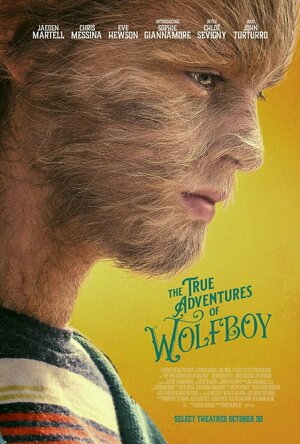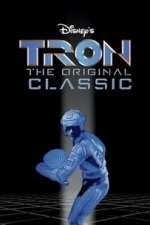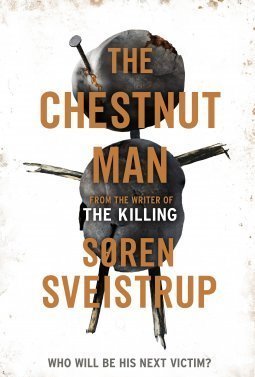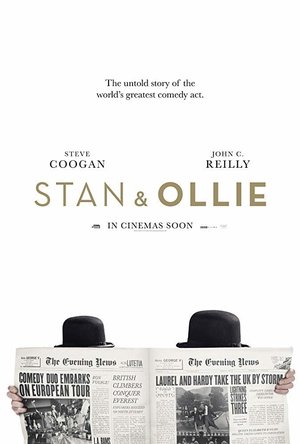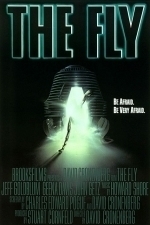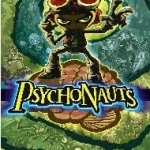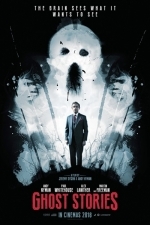Search
Search results
Sarah (7800 KP) rated The True Adventures of Wolfboy (2021) in Movies
Mar 1, 2021
Nice but lacking in magic
The Adventures of Wolfboy, also known as The True Adventures of Wolfboy, is a 2021 coming of age style drama and the feature film debut from Czech director Martin Krejcí. It follows Paul, a teenager with a life changing physical condition called congenital hypertrichosis that causes an abnormal and excessive amount of hair growth across his entire body, as he journeys to meet his estranged mother.
Paul (Jaeden Martell) lives an isolated life with his father in New York, where he hides away from everyone and only ventures out under the cover of a woolly balaclava, despite his father’s (Chris Messina) attempts to coax him into accepting his condition and revealing himself to the world. After a failed trip out to the local carnival for his 13th birthday, Paul returns home to find a mysterious gift from his mother (Chloë Sevigny), who he’s never known as she left when he was a child. Following a confrontation with his father over his proposal to send him to a special school, Paul runs away from home in search of his estranged mother. Along the way, he meets a number of colourful characters including carnival owner Mr. Silk (John Turturro), complicated and friendly Aristiana (Sophie Giannamore) and the daring and roguish Rose (Eve Hewson).
The Adventures of Wolfboy is undoubtedly a film for young adults or teenagers, meant as a coming of age, ‘accepting yourself’ type of road movie and in this it succeeds, although its message is rather more subtle than you’d expect. It expertly deals with the theme of loving yourself and others just as you are in a very low key manner, to the point where you almost miss the subtle hints at a character’s backstory (which is definitely true for Aristiana). For some this might be a problem, but a lot of films go out of their way to be heavy handed, virtually shoving a message down your throat so for me, I enjoyed the subtleties on display here. They’re helped by an unassuming performance from Jaeden Martell and charismatic turns from both Eve Hewson and Sophie Giannamore, who altogether with a story that doesn’t play out quite as predictably as first thought, make this an entertaining and heartwarming watch.
That said, despite the well meaning and heartwarming intentions, this film does falter. The title itself and the fairytale storyboard chapter titles throughout the film give this a magical sense of fantasy that just doesn’t quite materialise. I feel like it’s meant to be whimsical and adventurous, but the actual finished article falls short. It isn’t helped by John Turturro’s Mr Silk, who despite being the villain just comes across as weird rather than sinister, and what becomes of his character is a little lacklustre too. Generally if feels like it’s missing some ‘oomph’, a magical whimsical boost to turn this into something more than an average coming of age movie.
The Adventures of Wolfboy is a nice heartwarming film, and it’s refreshing to see a subtle take on a subject that has been done many times before. I just wished they’d have taken the magical and whimsical angle further, as this would have made it more than just average.
Paul (Jaeden Martell) lives an isolated life with his father in New York, where he hides away from everyone and only ventures out under the cover of a woolly balaclava, despite his father’s (Chris Messina) attempts to coax him into accepting his condition and revealing himself to the world. After a failed trip out to the local carnival for his 13th birthday, Paul returns home to find a mysterious gift from his mother (Chloë Sevigny), who he’s never known as she left when he was a child. Following a confrontation with his father over his proposal to send him to a special school, Paul runs away from home in search of his estranged mother. Along the way, he meets a number of colourful characters including carnival owner Mr. Silk (John Turturro), complicated and friendly Aristiana (Sophie Giannamore) and the daring and roguish Rose (Eve Hewson).
The Adventures of Wolfboy is undoubtedly a film for young adults or teenagers, meant as a coming of age, ‘accepting yourself’ type of road movie and in this it succeeds, although its message is rather more subtle than you’d expect. It expertly deals with the theme of loving yourself and others just as you are in a very low key manner, to the point where you almost miss the subtle hints at a character’s backstory (which is definitely true for Aristiana). For some this might be a problem, but a lot of films go out of their way to be heavy handed, virtually shoving a message down your throat so for me, I enjoyed the subtleties on display here. They’re helped by an unassuming performance from Jaeden Martell and charismatic turns from both Eve Hewson and Sophie Giannamore, who altogether with a story that doesn’t play out quite as predictably as first thought, make this an entertaining and heartwarming watch.
That said, despite the well meaning and heartwarming intentions, this film does falter. The title itself and the fairytale storyboard chapter titles throughout the film give this a magical sense of fantasy that just doesn’t quite materialise. I feel like it’s meant to be whimsical and adventurous, but the actual finished article falls short. It isn’t helped by John Turturro’s Mr Silk, who despite being the villain just comes across as weird rather than sinister, and what becomes of his character is a little lacklustre too. Generally if feels like it’s missing some ‘oomph’, a magical whimsical boost to turn this into something more than an average coming of age movie.
The Adventures of Wolfboy is a nice heartwarming film, and it’s refreshing to see a subtle take on a subject that has been done many times before. I just wished they’d have taken the magical and whimsical angle further, as this would have made it more than just average.
Jesters_folly (230 KP) rated TRON (1982) in Movies
Nov 17, 2020
Before Player One, before Ralph and Neo and even before the Lawnmower Man there was Tron. Tron covers a lot of ground, some of which was quite advanced for a film from 1983, we have hackers, corporate espionage, teleportation experiments, A.I. and what we would now call Cyberspace.
Basically Ed Dillinger is the boss of an evil corporation, Encom, (yes IT corporations were evil as far back as the 1980s) who got to where he was by stealing the programs of five arcade games from Flynn. Ed is being blackmailed by the 'Master Control Program' or 'MCP' for short, a rouge A.I. that believes it can rule the world better than humans.
Alan works at Encom and is trying to create a Data monitoring program called Tron. Alan is also dating Flynn's ex, Lora who also works at Encom, in a department that is developing a way of digitising mater and transporting it down a laser beam to a new destination. The three team up to help Flynn find the proof of the theft but the MCP digitises Flynn who finds himself used as a gladiator in the program. When Flynn meets the Tron program they team up to bring the MCP down.
First off the whole thing could have been stopped if Encom had proper health and safety, the computer that Flynn was using was the same one that operated the digitising laser and the laser was set up right behind the screen with barriers or other safety measures.
Ok in all seriousness the concepts in Tron were quite advanced, baring in mind that this was out in 1983, a time when home P.C.s were just beginning to become popular and the internet wasn't really around (there were networked computers but really only in offices) Tron brought us a concept of Cyberspace (although it wasn't called that in the film), a world where the computer programs live and the games are real. Not only that but everything is linked together, there weren't any networked games back then any you had to go to an arcade to play most of the games that existed.
By todays standards the Cyberspace world wouldn't feel right. It is a lineal landscape with fractural crystals coloured in greys, red and blues, a far cry from Wreck-it Ralph's advert filled, brightly coloured internet. Again this is due to when it was made, no internet, no advertising and, of course the computers of the time had slightly less memory than the ones today, with the ZX81 being released that year with a massive 16 or 48 Kb of memory, yes kiddies that's Kilo-bites, not even one meg so the games that were available were quite basic (compared to what we have today) an, of course, outside of an arcade those games would have been stored on floppy disk or cassette tape.
The action in Tron is muted, mainly kept to bike crashes and people throwing Frisbees at each other but this is because Tron is; 1) a kids film and 2) a Disney film. The muted action doesn't take away from the film though, it's still an enjoyable adventure film whose influence can be seen even now with films like Wreck-it Ralph.
For a film that is mostly early 80's CGI (or even just early CGI) Tron hasn't aged too badly and the story could easily have been written now, especially with the recent advent of LitRGP books and 'Isekai' anime such as 'Sword Art Online'.
Basically Ed Dillinger is the boss of an evil corporation, Encom, (yes IT corporations were evil as far back as the 1980s) who got to where he was by stealing the programs of five arcade games from Flynn. Ed is being blackmailed by the 'Master Control Program' or 'MCP' for short, a rouge A.I. that believes it can rule the world better than humans.
Alan works at Encom and is trying to create a Data monitoring program called Tron. Alan is also dating Flynn's ex, Lora who also works at Encom, in a department that is developing a way of digitising mater and transporting it down a laser beam to a new destination. The three team up to help Flynn find the proof of the theft but the MCP digitises Flynn who finds himself used as a gladiator in the program. When Flynn meets the Tron program they team up to bring the MCP down.
First off the whole thing could have been stopped if Encom had proper health and safety, the computer that Flynn was using was the same one that operated the digitising laser and the laser was set up right behind the screen with barriers or other safety measures.
Ok in all seriousness the concepts in Tron were quite advanced, baring in mind that this was out in 1983, a time when home P.C.s were just beginning to become popular and the internet wasn't really around (there were networked computers but really only in offices) Tron brought us a concept of Cyberspace (although it wasn't called that in the film), a world where the computer programs live and the games are real. Not only that but everything is linked together, there weren't any networked games back then any you had to go to an arcade to play most of the games that existed.
By todays standards the Cyberspace world wouldn't feel right. It is a lineal landscape with fractural crystals coloured in greys, red and blues, a far cry from Wreck-it Ralph's advert filled, brightly coloured internet. Again this is due to when it was made, no internet, no advertising and, of course the computers of the time had slightly less memory than the ones today, with the ZX81 being released that year with a massive 16 or 48 Kb of memory, yes kiddies that's Kilo-bites, not even one meg so the games that were available were quite basic (compared to what we have today) an, of course, outside of an arcade those games would have been stored on floppy disk or cassette tape.
The action in Tron is muted, mainly kept to bike crashes and people throwing Frisbees at each other but this is because Tron is; 1) a kids film and 2) a Disney film. The muted action doesn't take away from the film though, it's still an enjoyable adventure film whose influence can be seen even now with films like Wreck-it Ralph.
For a film that is mostly early 80's CGI (or even just early CGI) Tron hasn't aged too badly and the story could easily have been written now, especially with the recent advent of LitRGP books and 'Isekai' anime such as 'Sword Art Online'.
BookInspector (124 KP) rated The Chestnut Man in Books
Sep 24, 2020
I can’t decide one thing with this book, to put it in the “One of the best thrillers of 2018” because I read it this year, or to say that is “One of the best thrillers of 2019” because it is published next year. One thing for sure, it is an absolute treat!
The first thing that I really loved, was the cover. It looks quite simple, but the way that the chestnut man is portrayed gave me the feeling that it is going to be a great thriller, and it definitely didn’t disappoint me. I think, that in this book there are multiple protagonists- Thulin and Hess. They both play quite equal roles during the investigation, even though it might not feel so. There is a wide variety of characters in this novel, and all of them are very well nurtured and thought through. Their qualities are delivered slowly, and I loved how they opened up throughout the book. I really liked Thulin and Hess, they both are very complex individuals. They are quite different people, and when they work together, all the process feels messy, chaotic, but in the end, it provides results.
I don’t even know from where to begin with the praise for the plot. The whole narrative has multiple layers, and there are several cases combined in this book. We have the disappearance of a Minister’s daughter, which happened a while ago and shook the whole country, and at present, we have these new murders with the chestnut dolls at the crime scenes. These two things entwined with each other created more richness and action for the whole story. I loved that it was told from multiple perspectives, it not only allowed to get to know the characters better but also gave an insight into different minds. The author chose very intriguing topics for this novel, such as foster care; child abuse; social services and their work; politicians and their lives; different family relationships; discrimination at work and many more.
The writing style of this book is impeccable! Sveistrup is a very talented storyteller with a great eye for detail, and after reading this book, I am definitely his fan. I really loved the setting of this novel, it is set mainly in Copenhagen, during the autumn/winter season, which created a very gloomy and mysterious atmosphere to the whole novel. The author is not afraid to show disturbing (to some) killings with amputations or disgusting acts of humankind, so this book is not suitable for sensitive people. It might feel like a big book, but the chapters are really short and the whole plot and characters really absorbed me so, I just couldn’t put it down. I really liked the ending of this thriller, it is unexpected, unusual, but rounded this novel very beautifully!
So, to conclude, this book has everything what a great thriller needs. The characters are complex and intriguing, the mood, suspense and twists are very well developed, it is dark and can be disgusting at times, but overall it is a gripping novel and I can’t wait to read more from this author! I do strongly recommend it, and I hope you will enjoy it as much as I did.
The first thing that I really loved, was the cover. It looks quite simple, but the way that the chestnut man is portrayed gave me the feeling that it is going to be a great thriller, and it definitely didn’t disappoint me. I think, that in this book there are multiple protagonists- Thulin and Hess. They both play quite equal roles during the investigation, even though it might not feel so. There is a wide variety of characters in this novel, and all of them are very well nurtured and thought through. Their qualities are delivered slowly, and I loved how they opened up throughout the book. I really liked Thulin and Hess, they both are very complex individuals. They are quite different people, and when they work together, all the process feels messy, chaotic, but in the end, it provides results.
I don’t even know from where to begin with the praise for the plot. The whole narrative has multiple layers, and there are several cases combined in this book. We have the disappearance of a Minister’s daughter, which happened a while ago and shook the whole country, and at present, we have these new murders with the chestnut dolls at the crime scenes. These two things entwined with each other created more richness and action for the whole story. I loved that it was told from multiple perspectives, it not only allowed to get to know the characters better but also gave an insight into different minds. The author chose very intriguing topics for this novel, such as foster care; child abuse; social services and their work; politicians and their lives; different family relationships; discrimination at work and many more.
The writing style of this book is impeccable! Sveistrup is a very talented storyteller with a great eye for detail, and after reading this book, I am definitely his fan. I really loved the setting of this novel, it is set mainly in Copenhagen, during the autumn/winter season, which created a very gloomy and mysterious atmosphere to the whole novel. The author is not afraid to show disturbing (to some) killings with amputations or disgusting acts of humankind, so this book is not suitable for sensitive people. It might feel like a big book, but the chapters are really short and the whole plot and characters really absorbed me so, I just couldn’t put it down. I really liked the ending of this thriller, it is unexpected, unusual, but rounded this novel very beautifully!
So, to conclude, this book has everything what a great thriller needs. The characters are complex and intriguing, the mood, suspense and twists are very well developed, it is dark and can be disgusting at times, but overall it is a gripping novel and I can’t wait to read more from this author! I do strongly recommend it, and I hope you will enjoy it as much as I did.
Emma @ The Movies (1786 KP) rated Stan & Ollie (2018) in Movies
Sep 25, 2019
I think that almost everyone has some knowledge of Laurel and Hardy. Certainly growing up with a love of black and white comedies meant that I saw a fair few myself. There's certainly a familiarity in what we see from Coogan and Reilly that brings a smile to your face. The main problem is that it's such a hard act to follow. I can't say that I'm left raving about what was presented. It's a charming film... I'm just not sure if that's a compliment or not.
Seeing the BBC Films logo come up at the beginning gave me some hope. Having never really enjoy either of the main actor's work this actually gave me some hope that this would be an amazing sort of production that I've come to love from the BBC. Sadly, again, I wasn't wowed by what I saw.
Coogan and Reilly do both manage to capture their part of the double act well, and seeing those trademark moves briefly gives you that spark of joy. Nostalgia is a very powerful thing and you get a great buzz but I'm not sure it's enough to make up for the overall feeling of the film.
Both Shirley Henderson and Nina Arianda make for a fiery support cast in the roles of Lucille Hardy and Ida Laurel, but I have to say that Ida was the character for me. Self promoting and yet fiercely loyal. Loving and yet tinged with a streak of harsh reality. It was pleasing to see how she evolved to show such heart and unite the pair at the end.
Capturing snippets of a lifetime is always difficult. There are so many things going on that you have to choose whether to feature or not and that inevitably leads to gaps and slight inconsistencies. Hardy's gambling made several appearances but at no point is it really shown as a severe problem , most of it was done in a very lighthearted manner which sort of defeated the point of it being mentioned at all.
The first half of the film is incredibly slow and dare I say dull. So much so that I did wonder whether it was anything like the film that the trailer had promised. While I did silently chuckle to myself it was by no means laugh out loud funny with it's comedy... although the woman across the aisle from me would probably disagree on that point.
Despite my rather bland feelings about the film it did have some excellent moments. The opening sequence of them walking through the studio lot is really well set up, but shots after that were all very traditional. My other stand out moment was right at the end where they're doing their last performance. In that moment I had a stream of tears running down my face. The fact that they managed to convey the end of Laurel and Hardy's career in such a relatively short sequence was amazing.
Ultimately I think some of the greats from history should probably be left in that iconic position. I'm really not sure that this added anything to their story.
What you should do
If you#re one for nostalgia then you should head on out to see this in January.
Movie thing you wish you could take home
I'd have to have just a little piece of Stan Laurel's creativity and dedication.
Seeing the BBC Films logo come up at the beginning gave me some hope. Having never really enjoy either of the main actor's work this actually gave me some hope that this would be an amazing sort of production that I've come to love from the BBC. Sadly, again, I wasn't wowed by what I saw.
Coogan and Reilly do both manage to capture their part of the double act well, and seeing those trademark moves briefly gives you that spark of joy. Nostalgia is a very powerful thing and you get a great buzz but I'm not sure it's enough to make up for the overall feeling of the film.
Both Shirley Henderson and Nina Arianda make for a fiery support cast in the roles of Lucille Hardy and Ida Laurel, but I have to say that Ida was the character for me. Self promoting and yet fiercely loyal. Loving and yet tinged with a streak of harsh reality. It was pleasing to see how she evolved to show such heart and unite the pair at the end.
Capturing snippets of a lifetime is always difficult. There are so many things going on that you have to choose whether to feature or not and that inevitably leads to gaps and slight inconsistencies. Hardy's gambling made several appearances but at no point is it really shown as a severe problem , most of it was done in a very lighthearted manner which sort of defeated the point of it being mentioned at all.
The first half of the film is incredibly slow and dare I say dull. So much so that I did wonder whether it was anything like the film that the trailer had promised. While I did silently chuckle to myself it was by no means laugh out loud funny with it's comedy... although the woman across the aisle from me would probably disagree on that point.
Despite my rather bland feelings about the film it did have some excellent moments. The opening sequence of them walking through the studio lot is really well set up, but shots after that were all very traditional. My other stand out moment was right at the end where they're doing their last performance. In that moment I had a stream of tears running down my face. The fact that they managed to convey the end of Laurel and Hardy's career in such a relatively short sequence was amazing.
Ultimately I think some of the greats from history should probably be left in that iconic position. I'm really not sure that this added anything to their story.
What you should do
If you#re one for nostalgia then you should head on out to see this in January.
Movie thing you wish you could take home
I'd have to have just a little piece of Stan Laurel's creativity and dedication.
Andy K (10823 KP) rated The Fly (1986) in Movies
Oct 3, 2019
Be Afraid...Be Very Afraid
Seth Brundle is his own version of Dr Frankenstein. Instead of reanimating dead issue, his desire is to teleport flesh from one "telepod" to another.
After a chance meeting at a social magazine function, Veronica "Ronnie" Quaife meets the eccentric genius Brundle. She agrees to come back to his spacious, warehouse studio loft to see what he has been working on. He tells her about his masterpiece that will change the concept of travel throughout the world. After a short demonstration, Ronnie is not sure what to believe.
The next day, she explains what happened to her editor and scummy, sexist former boyfriend who suggests Brundle is just a con man. Eventually, Ronnie takes the offer to be Brundle's exclusive recorder of the evolution of his creation which has still one major flaw, it can only teleport inanimate objects. When tried on something living, the computer doesn't understand "the flesh" turn disembowels its subjects.Ronnie and Brundle begin a torrid affair amidst more work on the pods ultimately concluding with the successful teleportation of a baboon.
After Ronnie's boss and former lover threatens to publish her story early, Brundle gets drunk and decides it is time for a human trial of his newly perfected equipment. In his haste, he does not notice an insect guest present within his pod with him. Although successful, Brundle is not aware of his transformation yet to come.
His evolution from man to man/insect begins slowly, but continues relentlessly though Brundle does not know the cause. Once he looks through his records and discovers the genesis of his misfortune, he may be too late to stop it.
The Fly has to be director David Cronenberg's biggest financial hit grossing north of $40 million in 1986. Adjusted for inflation and considering the subject matter, genre and R rating, that would have to be much more if released today. It's hard to say the film would be Cronenberg's highest critical success, although most of his early films are now considered cult classics since they had a hard time finding mainstream audiences due to their "body horror" often gruesome visuals and offbeat subject matter.
Although most would classify as horror due to the shocking visuals within the last 30 minutes of the film, I have always felt it was more of a thriller. Once Bundle is infected, he has to use his sharp, but now deteriorating wits to figure a solution to his problem before it is too late. Every subsequent Ronnie visit to Brundle's loft finds unexpected results which keep the viewer on edge and wondering what horrors they will view next.
The make up effects in the film rivaled any of the top work ever at that time and garnered effect artist Chris Walas an Academy Award in 1986. By today's standards of CGI and film perfection, some elements could look a bit dated to modern audiences, but I believe still hold up to present day scrutiny.
The film score by frequent Cronenberg collaborator Howard Shore is haunting, bleak somber, and excellent.
Too often mesmerizing acting performances in horror/thriller movies get overlooked for the Oscars (except if you are Anthony Hopkins) which is a shame here. Jeff Goldblum undergoes not only a physical transformation, but his mannerisms, ticks and speech all go from human to insect and he deserves a lot of credit for what he did to bring "Brundlefly" to life.
After a chance meeting at a social magazine function, Veronica "Ronnie" Quaife meets the eccentric genius Brundle. She agrees to come back to his spacious, warehouse studio loft to see what he has been working on. He tells her about his masterpiece that will change the concept of travel throughout the world. After a short demonstration, Ronnie is not sure what to believe.
The next day, she explains what happened to her editor and scummy, sexist former boyfriend who suggests Brundle is just a con man. Eventually, Ronnie takes the offer to be Brundle's exclusive recorder of the evolution of his creation which has still one major flaw, it can only teleport inanimate objects. When tried on something living, the computer doesn't understand "the flesh" turn disembowels its subjects.Ronnie and Brundle begin a torrid affair amidst more work on the pods ultimately concluding with the successful teleportation of a baboon.
After Ronnie's boss and former lover threatens to publish her story early, Brundle gets drunk and decides it is time for a human trial of his newly perfected equipment. In his haste, he does not notice an insect guest present within his pod with him. Although successful, Brundle is not aware of his transformation yet to come.
His evolution from man to man/insect begins slowly, but continues relentlessly though Brundle does not know the cause. Once he looks through his records and discovers the genesis of his misfortune, he may be too late to stop it.
The Fly has to be director David Cronenberg's biggest financial hit grossing north of $40 million in 1986. Adjusted for inflation and considering the subject matter, genre and R rating, that would have to be much more if released today. It's hard to say the film would be Cronenberg's highest critical success, although most of his early films are now considered cult classics since they had a hard time finding mainstream audiences due to their "body horror" often gruesome visuals and offbeat subject matter.
Although most would classify as horror due to the shocking visuals within the last 30 minutes of the film, I have always felt it was more of a thriller. Once Bundle is infected, he has to use his sharp, but now deteriorating wits to figure a solution to his problem before it is too late. Every subsequent Ronnie visit to Brundle's loft finds unexpected results which keep the viewer on edge and wondering what horrors they will view next.
The make up effects in the film rivaled any of the top work ever at that time and garnered effect artist Chris Walas an Academy Award in 1986. By today's standards of CGI and film perfection, some elements could look a bit dated to modern audiences, but I believe still hold up to present day scrutiny.
The film score by frequent Cronenberg collaborator Howard Shore is haunting, bleak somber, and excellent.
Too often mesmerizing acting performances in horror/thriller movies get overlooked for the Oscars (except if you are Anthony Hopkins) which is a shame here. Jeff Goldblum undergoes not only a physical transformation, but his mannerisms, ticks and speech all go from human to insect and he deserves a lot of credit for what he did to bring "Brundlefly" to life.

JusTalk: simple video calling
Social Networking
App
JusTalk is a FREE high-quality video and voice calling app for everyone - simple, reliable, secure...
Matthew Krueger (10051 KP) rated the PlayStation 3 version of Psychonauts in Video Games
May 8, 2020 (Updated May 8, 2020)
Whats In Your Head
Psychonauts- I remember playing this game on the oringal Xbox and PS2 and now with the second game coming out this year hopefully. At Pax East this year, I did see the Demo and it looks excellent.
Im going to review the first one. This is the PS3 remaster verison review.
Psychonauts- is a platforming game developed by Double Fine Productions that first released in 2005.
Psychonauts follows the player-character Raz (voiced by Richard Horvitz), a young boy gifted with psychic abilities who runs away from the circus to try to sneak into a summer camp for those with similar powers to become a "Psychonaut", a spy with psychic abilities. He finds that there is a sinister plot occurring at the camp that only he can stop.
The game is centered on exploring the strange and imaginative minds of various characters that Raz encounters as a Psychonaut-in-training/"Psycadet" to help them overcome their fears or memories of their past, so as to gain their help and progress in the game. Raz gains use of several psychic abilities during the game that are used for both attacking foes and solving puzzles. The player can assign three of these powers to their controller or keyboard for quick use, but all earned powers are available at any time through a selection screen.
The game includes both the "real world" of the camp and its surroundings, as well as a number of "mental worlds" which exist in the consciousness of the game's various characters.
The mental worlds have wildly differing art and level design aesthetics, but generally have a specific goal that Raz must complete to help resolve a psychological issue a character may have, allowing the game's plot to progress.
Within the mental worlds are censors that react negatively to Raz's presence and will attack him. There are also various collectibles within the mental worlds, including "figments" of the character's imagination which help increase Raz's psi ranking, "emotional baggage" which can be sorted by finding tags and bringing them to the baggage, and "memory vaults" which can unlock a short series of slides providing extra information on that character's backstory.
The story is set in fictional Whispering Rock Psychic Summer Camp, a remote US government training facility under the guise of a children's summer camp.
Psychonauts is a platform game that incorporates various adventure elements. The player controls the main character Raz in a third-person, three-dimensional view, helping Raz to uncover a mystery at the Psychonauts training camp. Raz begins with basic movement abilities such as running and jumping, but as the game progresses, Raz gains additional psychic powers such as telekinesis, levitation, invisibility, and pyrokinesis. These abilities allow the player to explore more of the camp as well as fight off enemies.
Despite being well received, Psychonauts did not sell well with only about 100,000 retail units sold at the time of release, leading to severe financial loss for Majesco and their departure from the video game market; the title was considered a commercial failure. Psychonauts since has earned a number of industry awards and gained a cult following.
Its a excellent and phenomenal game and cant wait to play the second one.
Im going to review the first one. This is the PS3 remaster verison review.
Psychonauts- is a platforming game developed by Double Fine Productions that first released in 2005.
Psychonauts follows the player-character Raz (voiced by Richard Horvitz), a young boy gifted with psychic abilities who runs away from the circus to try to sneak into a summer camp for those with similar powers to become a "Psychonaut", a spy with psychic abilities. He finds that there is a sinister plot occurring at the camp that only he can stop.
The game is centered on exploring the strange and imaginative minds of various characters that Raz encounters as a Psychonaut-in-training/"Psycadet" to help them overcome their fears or memories of their past, so as to gain their help and progress in the game. Raz gains use of several psychic abilities during the game that are used for both attacking foes and solving puzzles. The player can assign three of these powers to their controller or keyboard for quick use, but all earned powers are available at any time through a selection screen.
The game includes both the "real world" of the camp and its surroundings, as well as a number of "mental worlds" which exist in the consciousness of the game's various characters.
The mental worlds have wildly differing art and level design aesthetics, but generally have a specific goal that Raz must complete to help resolve a psychological issue a character may have, allowing the game's plot to progress.
Within the mental worlds are censors that react negatively to Raz's presence and will attack him. There are also various collectibles within the mental worlds, including "figments" of the character's imagination which help increase Raz's psi ranking, "emotional baggage" which can be sorted by finding tags and bringing them to the baggage, and "memory vaults" which can unlock a short series of slides providing extra information on that character's backstory.
The story is set in fictional Whispering Rock Psychic Summer Camp, a remote US government training facility under the guise of a children's summer camp.
Psychonauts is a platform game that incorporates various adventure elements. The player controls the main character Raz in a third-person, three-dimensional view, helping Raz to uncover a mystery at the Psychonauts training camp. Raz begins with basic movement abilities such as running and jumping, but as the game progresses, Raz gains additional psychic powers such as telekinesis, levitation, invisibility, and pyrokinesis. These abilities allow the player to explore more of the camp as well as fight off enemies.
Despite being well received, Psychonauts did not sell well with only about 100,000 retail units sold at the time of release, leading to severe financial loss for Majesco and their departure from the video game market; the title was considered a commercial failure. Psychonauts since has earned a number of industry awards and gained a cult following.
Its a excellent and phenomenal game and cant wait to play the second one.
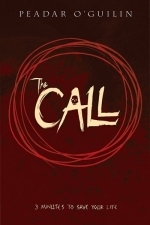
The Call
Book
THREE MINUTES You wake up alone in a horrible land. A horn sounds. The Call has begun. TWO...

Hooked on Phonics - The #1 Learn to Read Program
Education and Games
App
Hooked on Phonics is Highly Effective and Incredibly Fun. Nurture your child's reading and...
Bob Mann (459 KP) rated Ghost Stories (2018) in Movies
Sep 29, 2021
In that sleep of death, what dreams may come.
“Ghost Stories” is based on the spooky London West-End stage play by Jeremy Dyson and Andy Nyman who both write and direct the film version. I didn’t know this until the end credits, but began to wonder in the final act where the action suddenly becomes very “stagey” in nature. The screenplay was always bound to be both bizarre and intriguing, since Dyson has been a past contributor to TV’s “League of Gentlemen” and other equally surreal programmes and Nyman has been a major collaborator with the stage-illusionist Derren Brown.
Nyman himself plays TV paranormal debunker Professor Goodman who receives a surprise message from a respected colleague, long thought dead, who on his death bed wants Goodman to investigate the three cases from his career that he was never able to debunk. The first concerns Tony Matthews (Paul Whitehouse, “The Death of Stalin“) as a night watchman at a spooky old asylum; the second concerns Simon Rifkind (Alex Lawther, young Turing in “The Imitation Game“) as a freaked-out young man with a forest breakdown; and Mike Priddle (Martin Freeman, “Black Panther“) as a rich broker with parenting issues. As Goodman investigates each case weirder and weirder things start to happen: is this his mind playing tricks as his faith is rocked, or is there something more sinister going on?
The primary issue I have with this film is its portmanteau nature, harking back to similar films like “The Twilight Zone: the Movie”. Having three segments, loosely linked together, feels like a clunky device for a feature film…. (“Why are there three cases to investigate? Well, two would have made the film too short, and four would have made it too long!”).
That being said, the overall story arc and the drawing together of the strands for the unexpected (although not terribly original) conclusion, is intriguing.
The film looks and feels like a British-made horror film, which is both a compliment and a criticism. Who doesn’t like the jump-scares and the vague tackiness of a Hammer horror? But if you care to compare the production values on show here versus “A Quiet Place“, there is no comparison. The location-shot scenes (which are most of the scenes) seem to be very poorly lit: and that’s the non-spooky ones where you are supposed to see what’s going on!
The cast seem to be well-suited to their roles, with Paul Whitehouse in particular being impressive as the ‘on the make’ Matthews, who always feels like being on the knife-edge of violent outburst. I particularly liked Alex Lawther who does “spooked” extremely well! The script also seems to be well-tuned to the characters, with a number of laugh-out-loud lines. “****ing O2” exclaims Simon as he waves his mobile in the air… something the marketing department at the telecoms giant must have loved!
The critics seem to have been overtly positive about this film, which I can’t quite match. Apart from one or two scenes towards the end, all of the jump scares were pretty well signposted in advance. But it’s still as fun as a slightly tacky ghost house ride at the fairground, if you like that sort of thing, and is certainly a much more interesting and better watch in my book than some recent and much higher budget horror films like “It“.
Nyman himself plays TV paranormal debunker Professor Goodman who receives a surprise message from a respected colleague, long thought dead, who on his death bed wants Goodman to investigate the three cases from his career that he was never able to debunk. The first concerns Tony Matthews (Paul Whitehouse, “The Death of Stalin“) as a night watchman at a spooky old asylum; the second concerns Simon Rifkind (Alex Lawther, young Turing in “The Imitation Game“) as a freaked-out young man with a forest breakdown; and Mike Priddle (Martin Freeman, “Black Panther“) as a rich broker with parenting issues. As Goodman investigates each case weirder and weirder things start to happen: is this his mind playing tricks as his faith is rocked, or is there something more sinister going on?
The primary issue I have with this film is its portmanteau nature, harking back to similar films like “The Twilight Zone: the Movie”. Having three segments, loosely linked together, feels like a clunky device for a feature film…. (“Why are there three cases to investigate? Well, two would have made the film too short, and four would have made it too long!”).
That being said, the overall story arc and the drawing together of the strands for the unexpected (although not terribly original) conclusion, is intriguing.
The film looks and feels like a British-made horror film, which is both a compliment and a criticism. Who doesn’t like the jump-scares and the vague tackiness of a Hammer horror? But if you care to compare the production values on show here versus “A Quiet Place“, there is no comparison. The location-shot scenes (which are most of the scenes) seem to be very poorly lit: and that’s the non-spooky ones where you are supposed to see what’s going on!
The cast seem to be well-suited to their roles, with Paul Whitehouse in particular being impressive as the ‘on the make’ Matthews, who always feels like being on the knife-edge of violent outburst. I particularly liked Alex Lawther who does “spooked” extremely well! The script also seems to be well-tuned to the characters, with a number of laugh-out-loud lines. “****ing O2” exclaims Simon as he waves his mobile in the air… something the marketing department at the telecoms giant must have loved!
The critics seem to have been overtly positive about this film, which I can’t quite match. Apart from one or two scenes towards the end, all of the jump scares were pretty well signposted in advance. But it’s still as fun as a slightly tacky ghost house ride at the fairground, if you like that sort of thing, and is certainly a much more interesting and better watch in my book than some recent and much higher budget horror films like “It“.
